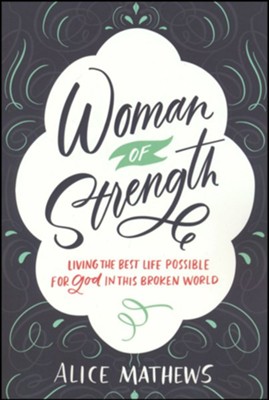Reflecting God’s Character at Work (Proverbs 31) - God’s Word for Work, Online Video Bible Study
Reflecting God’s Character at Work (Proverbs 31)
Agenda
1. Leader gathers the group in an online meeting.
2. Leader shares screen and audio.
3. Leader plays video. The video includes:
- Introduction to God's Word for Work
- Opening prayer
- Bible reading: Proverbs 31:10-31
- 1 minute for quiet reflection
- Excerpts from the Theology of Work Bible Commentary: The Valiant Woman
4. Leader pauses the video and the group discusses the readings.
5. Leader resumes the video with the closing prayer.
Opening Prayer
God, we invite you to speak to us through the Bible today. Show us what your word means for our work. Amen.
Bible reading: Proverbs 31:10-31
Who can find a virtuous wife?
For her worth is far above rubies.
The heart of her husband safely trusts her;
So he will have no lack of gain.
She does him good and not evil
All the days of her life.
She seeks wool and flax,
And willingly works with her hands.
She is like the merchant ships,
She brings her food from afar.
She also rises while it is yet night,
And provides food for her household,
And a portion for her maidservants.
She considers a field and buys it;
From her profits she plants a vineyard.
She girds herself with strength,
And strengthens her arms.
She perceives that her merchandise is good,
And her lamp does not go out by night.
She stretches out her hands to the distaff,
And her hand holds the spindle.
She extends her hand to the poor,
Yes, she reaches out her hands to the needy.
She is not afraid of snow for her household,
For all her household is clothed with scarlet.
She makes tapestry for herself;
Her clothing is fine linen and purple.
Her husband is known in the gates,
When he sits among the elders of the land.
She makes linen garments and sells them,
And supplies sashes for the merchants.
Strength and honor are her clothing;
She shall rejoice in time to come.
She opens her mouth with wisdom,
And on her tongue is the law of kindness.
She watches over the ways of her household,
And does not eat the bread of idleness.
Her children rise up and call her blessed;
Her husband also, and he praises her:
“Many daughters have done well,
But you excel them all.”
Charm is deceitful and beauty is passing,
But a woman who fears the Lord, she shall be praised.
Give her of the fruit of her hands,
And let her own works praise her in the gates.
Excerpt from the Theology of Work Bible Commentary: The Valiant Woman
A remarkable connection between the book of Proverbs and the world of work occurs at the end of the book. Lady Wisdom reappears in street clothes in the final 22 verses of the book of Proverbs as a living, breathing woman, termed “the virtuous woman” in the King James Version. Some translators use “wife” instead of “woman,” and both “wife” and “woman” are possible translations of the Hebrew ishshah. But the text focuses on the woman’s work as an entrepreneur with workers to manage. Proverbs 31:10-31 does not merely apply to the workplace; it takes place in a workplace.
The book of Proverbs is summarized, then, in a poem praising a woman who is the wise manager of a diverse enterprise ranging from weaving to wine making to trade in the market. To describe the woman’s character, translators variously use the words “virtuous” (King James Version), “capable” (New Revised Standard Version), “excellent” (New American Standard Bible), or “of noble character” (New International Version). But these terms fail to capture the element of strength present in the underlying Hebrew word (chayil). In a majority of its 246 appearances in the Old Testament, chayil applies to fighting men (for example, David’s “mighty warriors” in 1 Chronicles 7:2). Translators tend to downplay the element of strength when the word is applied to a woman, as with Ruth, whom English translations describe as “noble” (in the New International Version and Today’s New International Version), “virtuous” (in the New Revised Standard Version, and the King James Version ) or “excellent” (in the New American Standard Bible). But the Hebrew word is the same, whether applied to a man or a woman. In describing the woman of Proverbs, its meaning is best understood as strong or valiant, as further indicated by the description, “She girds herself with strength, and makes her arms strong” (Proverbs 31:17).
The high importance of this section in the book of Proverbs is signaled in two ways. First, it is in the form of an acrostic poem, meaning that its lines begin with the 22 letters of the Hebrew alphabet, in order, making it memorable. Second, it is placed at the climax of the entire book, so the poem can be seen as a summary to the book of Proverbs. A wise worker, according to Proverbs, is trustworthy, diligent, shrewd, and generous. She is just, modest, and guards her tongue. The Valiant Woman embodies all these traits.
To some people in the ancient near east, and even to some now, portraying a woman as a model of wise entrepreneurship would be surprising. Despite the fact that God gave the gift of work to men and women equally in Genesis 1 and 2, women’s work has often been denigrated. In the book of Proverbs, God's wisdom is available equally to men and women. The valiant woman functions as an affirmation of the dignity of every person’s work.
As always in the book of Proverbs, the way of wisdom flows out of the fear of the Lord. After all the Valiant Woman’s virtues are described, the poem reveals the source of her wisdom in Proverbs 31:20. “A woman who fears the Lord is to be praised."
Group Discussion
- How does what you heard apply to your work?
Closing Prayer
God, thank you for being present with us today. Please stay with us in our work, wherever we go. Amen.






_262_136_60_s_c1.jpg)
__thumb-home_262_136_60_s_c1.jpg)


 The Proverbs 31 woman has long intimidated women and made them question-Who has time to do all that? Bible teacher Alice Mathews equips readers with truth and wisdom using sound biblical exegesis. Through careful translation, practical application, and reflection questions, Alice helps women understand the concept of strength highlighted in the Bible text and learn what the passage reveals about men, women, and God himself.
The Proverbs 31 woman has long intimidated women and made them question-Who has time to do all that? Bible teacher Alice Mathews equips readers with truth and wisdom using sound biblical exegesis. Through careful translation, practical application, and reflection questions, Alice helps women understand the concept of strength highlighted in the Bible text and learn what the passage reveals about men, women, and God himself.